النزوح أثر الحرب في السودان على التعليم العالي ومجتمع البحث الأكاديمي
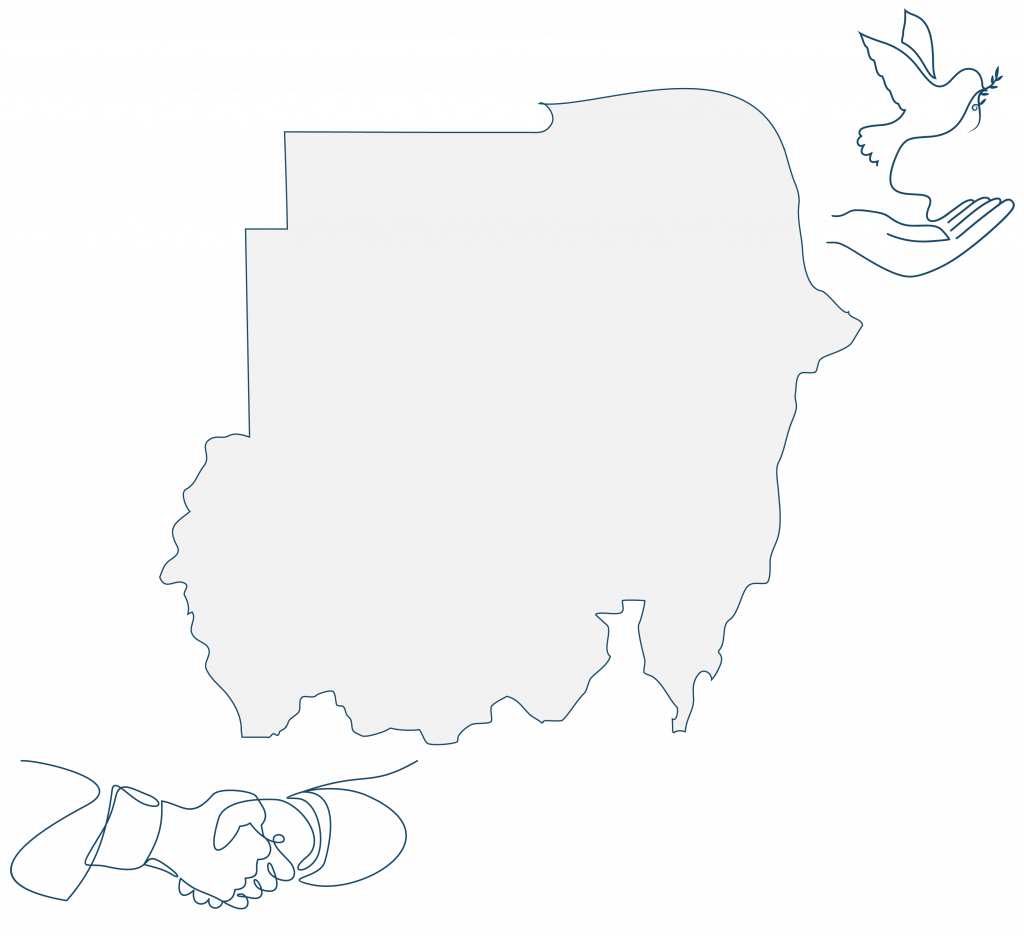
ويبينار تاريخ: الخميس 14 نوفيمبر 2024 ساعة: 2-4 مساء في القاهرة مكان: اونلاين في زوم منذ أن اندلعت الحرب في الخرطوم في 15 أبريل 2023، واجه سكان السودان سلسلة من المآسي والتحديات التي لا توصف. فقد شردت الحرب ملايين الأشخاص، و من بينهم أكاديميون وباحثون سودانيون. مما عنى نقص في الدراسات و البحوث الخاصة بالوضع […]
بحث في النزوح
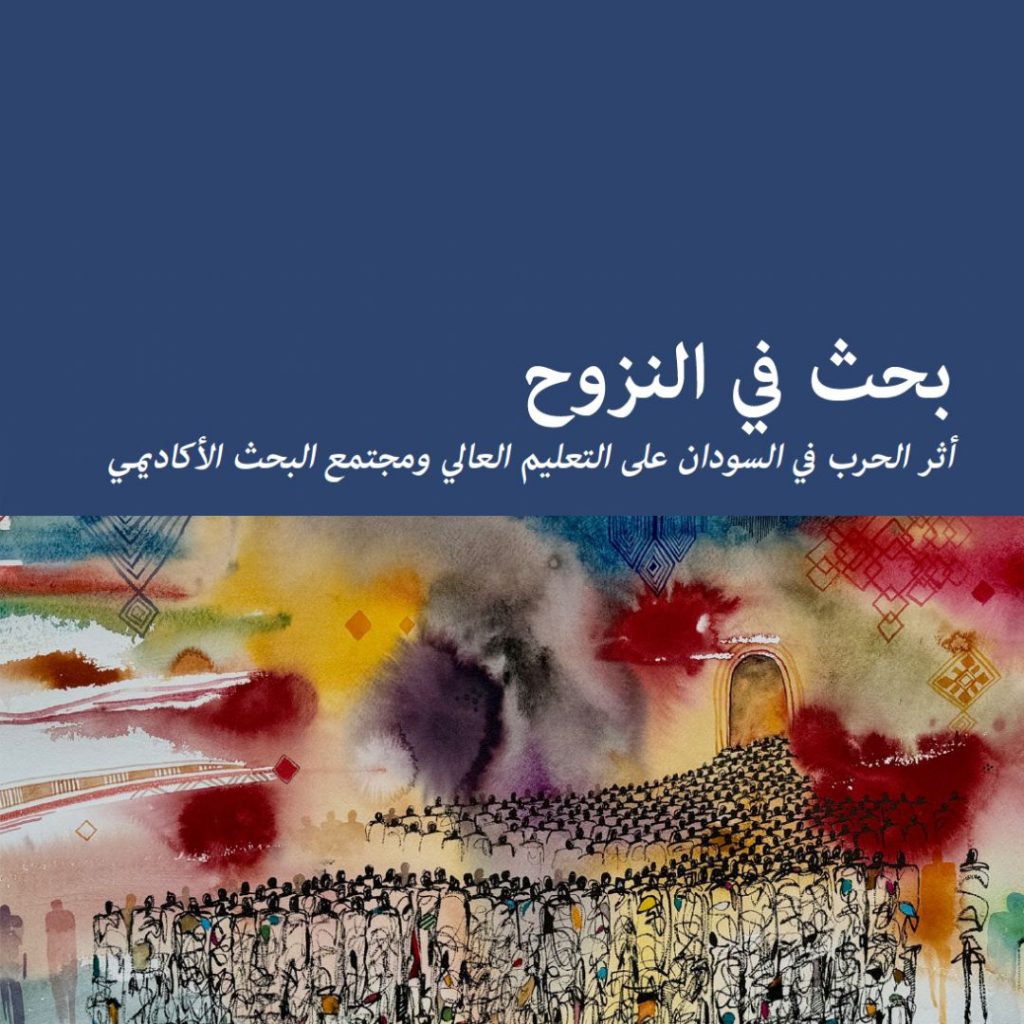
أثر الحرب في السودان على التعليم العالي ومجتمع البحث الأكاديمي ملخص تنفيذي خلف اندلاع الحرب في السودان في أبريل 2023 دماراً ومعاناة لا حصر لها، مما شكل تهديداً لمؤسسات مهمة على امتداد القطر. ومن ضمنها مؤسسات التعليم العالي السودانية، التي لم تواجه تدميراً للمنشآت المهمة فحسب، لكن أيضاً النزوح الجماعي للطلاب وهيئات التدريس. يقيّم هذا […]
RESEARCH IN DISPLACEMENT: THE IMPACT OF WAR ON SUDAN’S HIGHER EDUCATION AND ACADEMIC RESEARCH
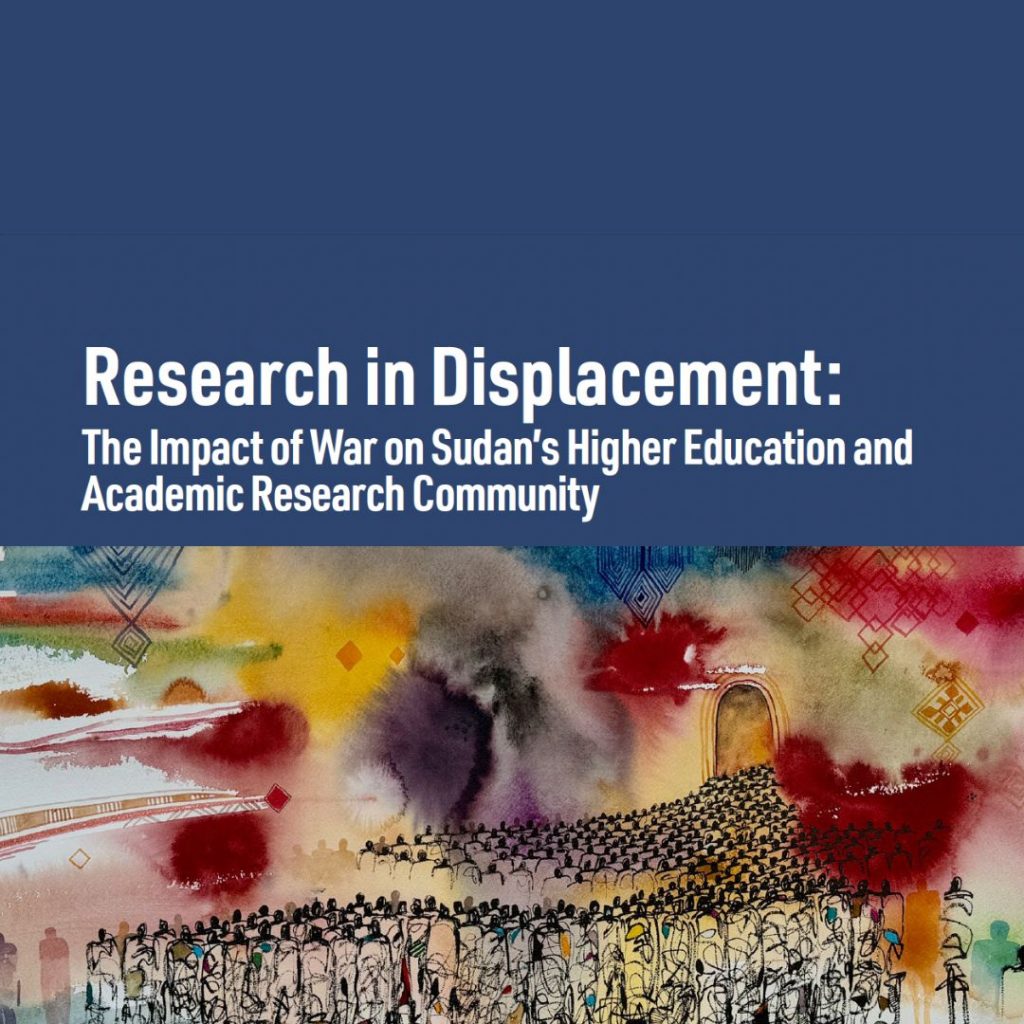
SUMMARY The outbreak of war in Sudan in April 2023 has created immeasurable suffering and damage, threatening critical institutions across the country. Amongst these is Sudanese higher education, which has faced not only the destruction of critical facilities, but also the mass displacement of students and faculty. This report assesses the extent of the damage […]
THE TRIPLE BURDEN: WOMEN SELLING THEIR LABOUR IN SOUTH SUDAN
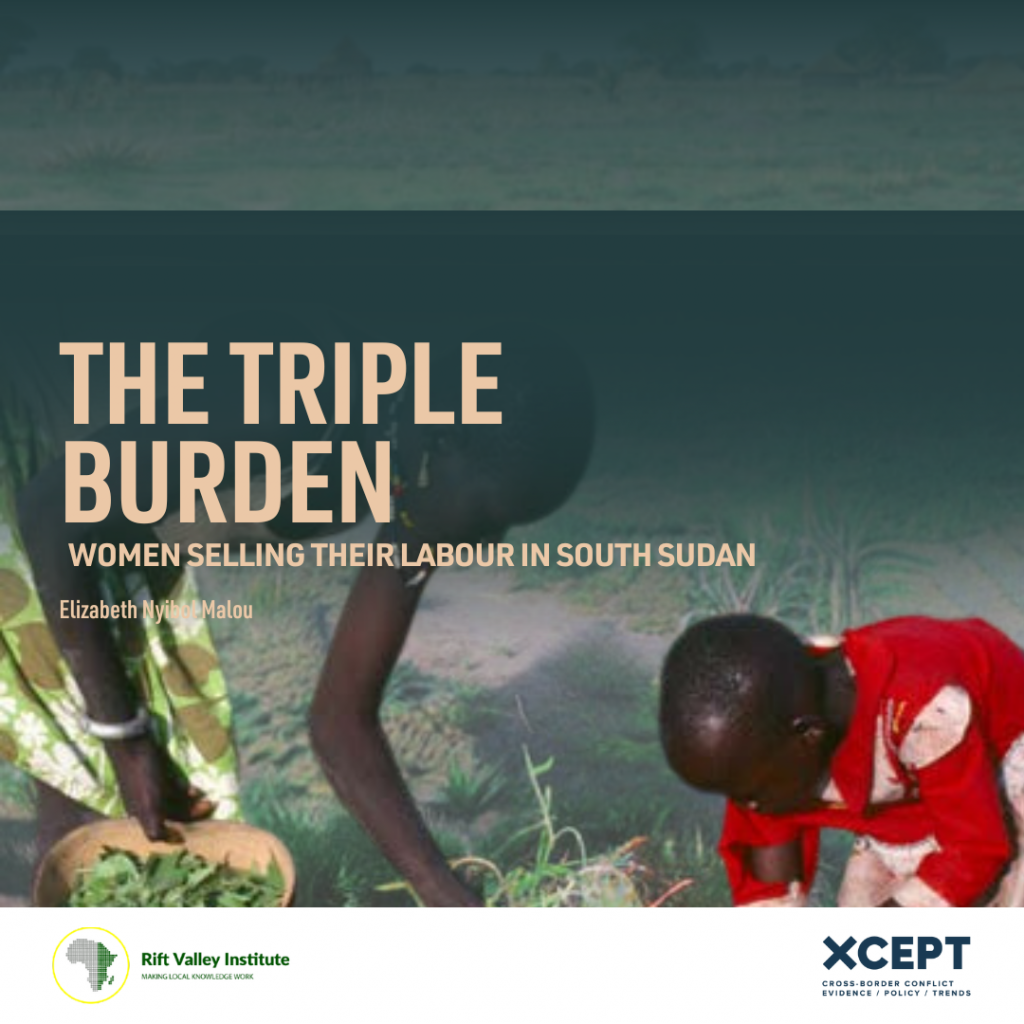
SUMMARY In rural South Sudan, markets for food, labour, and land are expanding, leading to increased workloads for women. Historically, rural women had two primary labour burdens: producing food for home consumption and providing essential life-giving labour such as child-rearing and household maintenance. These were unpaid. Now, they face a third burden: producing food for […]
TRANSBORDER MOBILE MONEY PLATFORMS IN THE GREATER SOMALI ECONOMIC SPACE
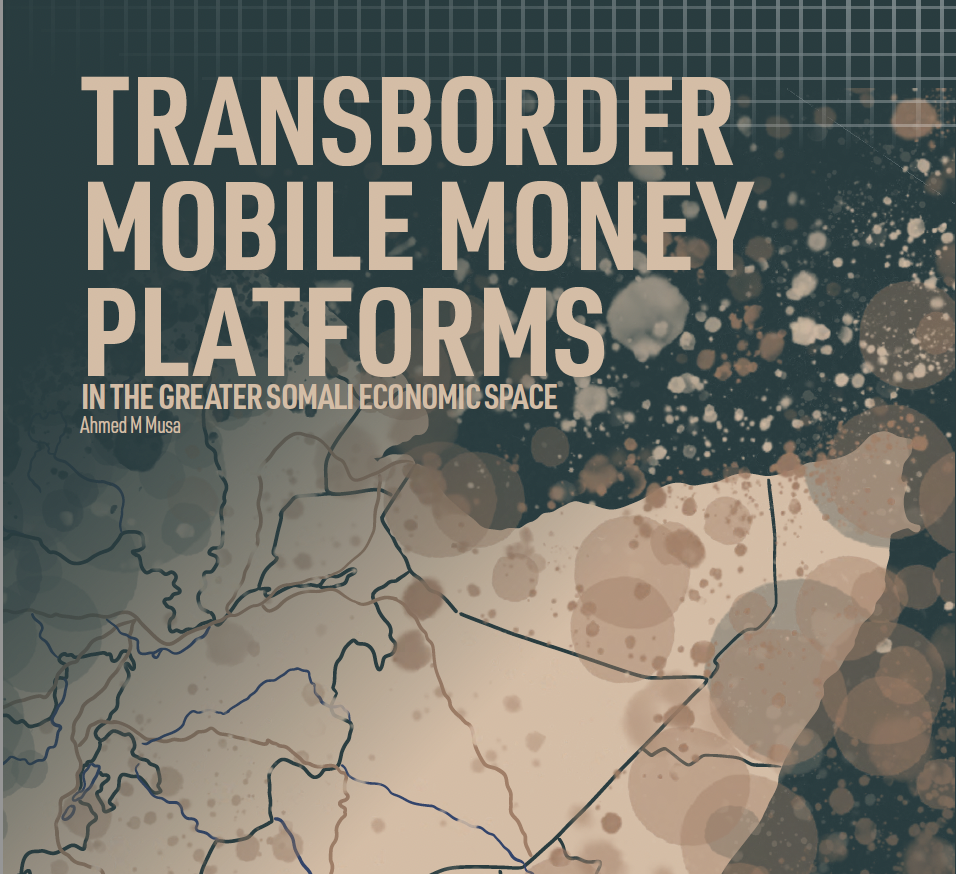
SUMMARY The informal transborder movement of goods and people have long captivated scholars, policymakers and security institutions in the East Africa region, in particular in the Horn of Africa (HoA). Special attention has been given to the transborder economic activities within what is referred to as the ‘greater Somali economic space’. This area encompasses Somali-inhabited […]
Webinar | The Structure of Violence: States, Official Militaries, Paramilitaries, and Non-State Militias in the Northern Horn of Africa
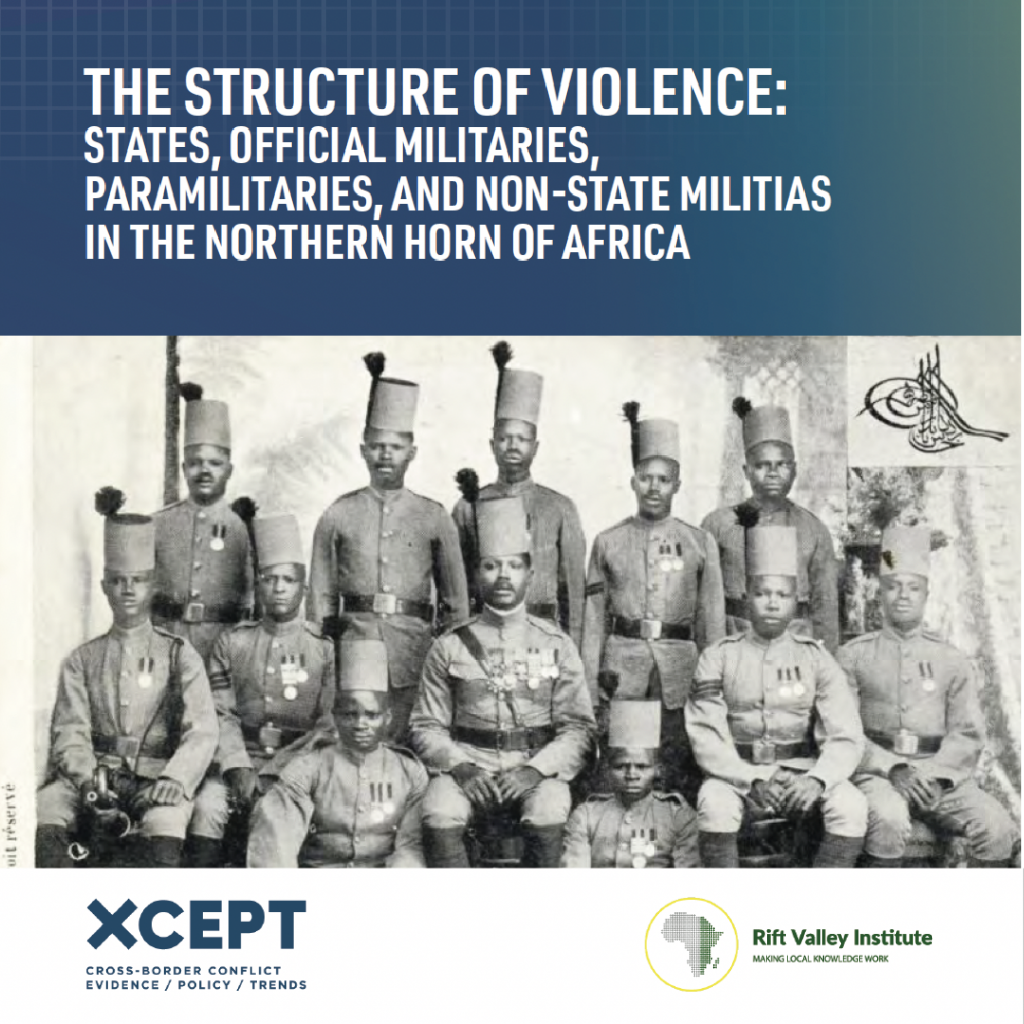
For more than a century, the Horn of Africa has been affected by war and violence triggered and driven by clashes between state militaries, paramilitaries and other non-state militia groups. The ongoing war in Sudan between the Sudanese Armed Forces (SAF) and the Rapid Support Forces (RSF), and the recent Tigray war in Ethiopia that […]
WAR AND THE BORDERLAND: SUDAN, ETHIOPIA AND ERITREA AT A TIME OF CONFLICT
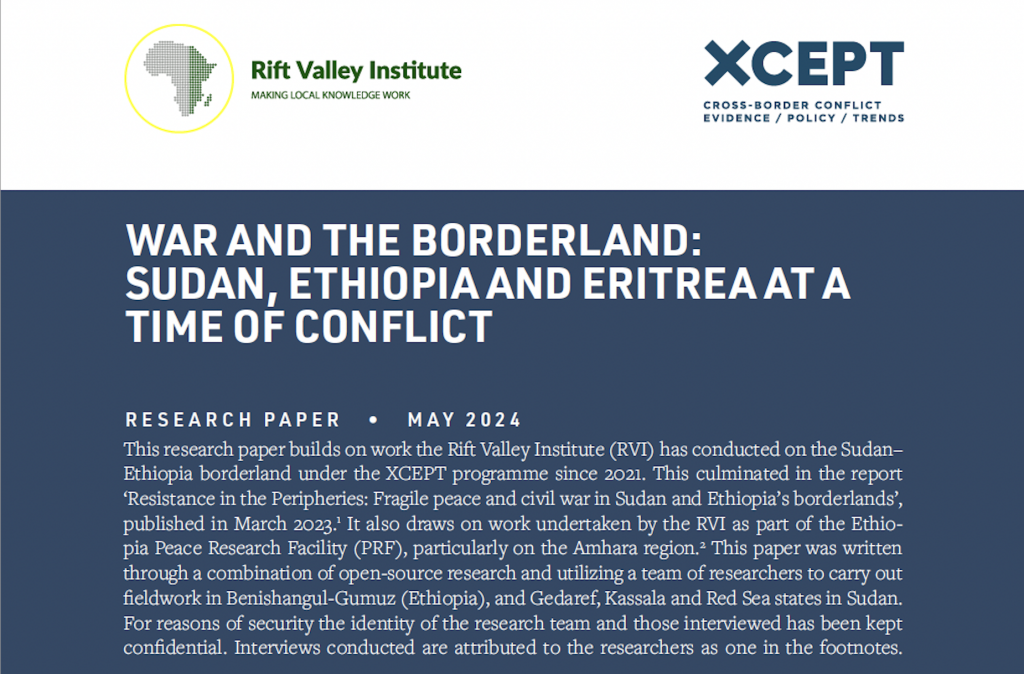
This research paper builds on work the Rift Valley Institute (RVI) has conducted on the Sudan–Ethiopia borderland under the XCEPT programme since 2021. This culminated in the report ‘Resistance in the Peripheries: Fragile peace and civil war in Sudan and Ethiopia’s borderlands’, published in March 2023. It also draws on work undertaken by the RVI […]
THE STRUCTURE OF VIOLENCE: STATES, OFFICIAL MILITARIES, PARAMILITARIES,AND NON-STATE MILITIAS IN THE NORTHERN HORN OF AFRICA

EXECUTIVE SUMMARY In Sudan and Ethiopia, official militaries are currently fighting against paramilitaries and non-state militias that, previously, had been important battlefield allies. The ongoing violence does not reflect a breakdown in the political order. Rather, these conflicts are the direct result of the persistence of a centuries-old regional military-political system created by unstable states […]
WAR AND THE BORDERLAND: NORTHERN BAHR EL-GHAZAL DURING THE SUDAN CONFLICT
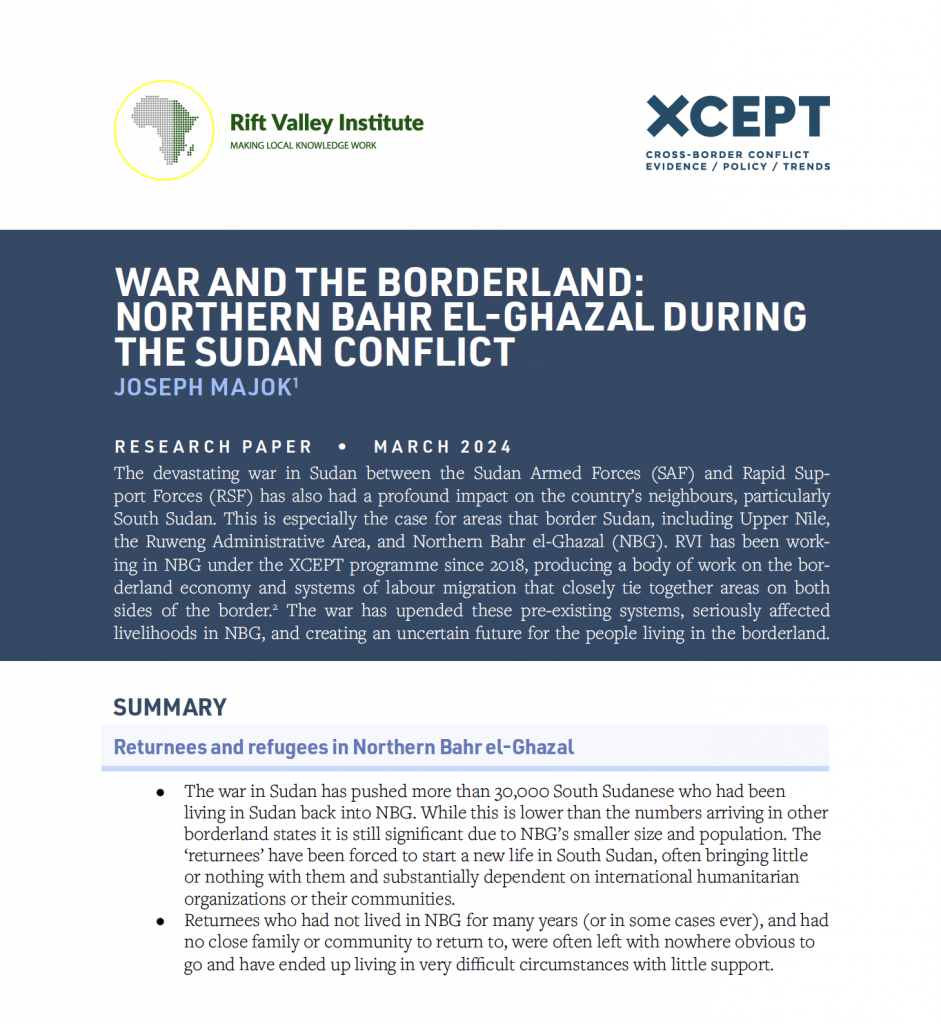
The devastating war in Sudan between the Sudan Armed Forces (SAF) and Rapid Support Forces (RSF) has also had a profound impact on the country’s neighbours, particularly South Sudan. This is especially the case for areas that border Sudan, including Upper Nile, the Ruweng Administrative Area, and Northern Bahr el-Ghazal (NBG). RVI has been working […]
Podcast: The political economy of checkpoints in Somalia
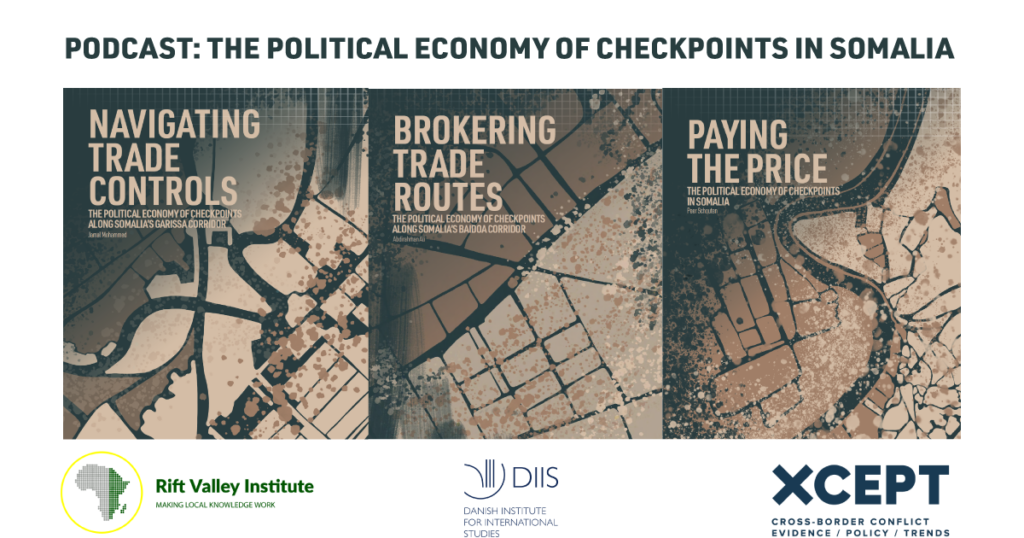
In this podcast, hosted by Hannah Stogdon of the Rift Valley Institute (RVI), we delve into the intricate web of roadblocks, checkpoints, and their pivotal role in the political economy of cross-border trade and conflict in Somalia. Our guests, Peer Schouten, Abdirahman Edle, and Jamal Mohamed, share fresh evidence and invaluable insights from their research […]
